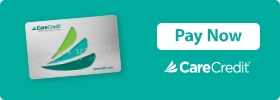Michelle T.
I fly in to see Dr. Petros from Southern California. I wouldn't do so if he wasn't the best there is. He is compassionate and has always treated me kindly. I can tell he is sincere in the way he talks to me and is diligently looking for solutions that work best with me and my chronic pain needs. Very out of the box approach, which I appreciate these days! I would truly recommend Dr. Petros to anyone looking for a Dr. that not only cares about you as a patient but has the confidence and skill set to get results!
His office staff is friendly and caring too. Allied Pain and Spine Institute is the Gold Standard in pain care in my humble opinion!! When I find a doctor that understands the issue and always goes above and beyond to help me, I do what I can to continue seeing them. I am so glad I found this office!!
Louise W.
Dr Petros is amazing! When he uses a needle his aim is "right on". He is also very personable, an altogether great guy. I always find my visits to him to be very informative.
I have had both sides of my degenerated back injected (epidural shots) with complete success. He allows me to have no sedative, which is cool because his jokes and stories in the operating room are really good. He greatly enjoys his work, and enjoys the difficult challenges of getting a needle into the right place in my back. My arthritic knee is perhaps more straight-forward, but other doctors have failed to give me pain relief. Dr Petros studies the structure with ultrasound before injecting it. The result - instant relief!
On my recent visit for a broken back (ski accident) the doctor and staff were very accommodating to help me make a dinner engagement shortly after my appointment. This is definitely a five-star operation!
Ellie O.
Wow, wonderful doctor!!! I avoid all the doctors like the plague...seriously it makes my blood pressure go up when I have to go but I chose Dr. Vaidya. My friend referred him to me, he's simply the best... TOP NOTCH!!! He turned out to be a breath of fresh air. Dr. Vaidya really stands out head and shoulders above everyone else. I usually don't write reviews but he's so outstanding that I really wanted to do it for him. He's the most honest and caring doctor I have met. He listens and gives you full attention and committed to find the best individual solution for you. He always goes out of his way to get you the most appropriate treatment and he will make it happen. He's very knowledgeable in his field. He's very professional, friendly, personable and definitely easy to talk to. His integrity is very valuable. He's one of the sharpest and most driven individuals you will ever meet.
Keith M.
Simply the best doctors and staff in the area. I've fought back and neck pain for over 30 years, and Dr. Petros and his team have kept me from the operating table and able to enjoy my life. I've had injections, acupuncture, as well as back braces. He listens to my concerns, cares very deeply for my pain and discomfort, and has successfully treated everything from stenosis, pinched nerves, herniated disks, and even helped me with the symptoms from shingles and lung disease. I couldn't be happier with the care he has given me over the years.
Kaitlin Z.
Dr. Vaidya has changed my life. I am in my late 20s with chronic pain and nothing had worked until I came here. All services here are wonderful and the staff is absolutely amazing. I can't recommend enough!!
Tracy B.
I have been a patient of Dr. Vaidya for a few years after not getting what I needed from other spine and pain doctors. I was looking for a doctor who would think outside the box and come up with some other ways to treat my growing amount of pain. Between Dr. Petros and Dr. Vaidya, they have brought me to a place where my pain is better managed. And let's just talk about bedside manners! I have never met doctors in the past 23 years of this back journey of mine that has as amazing bedside manners as these guys. I have cried and laughed with the team at Allied Spine. The way that I am always greeted and promptly cared for is bar none! The front office staff, and especially Nas, has been a God sent. I would never go anywhere else.
Justin P.
I am a new patient of DR Petros and my experience was great for my first two visits so far. He really takes time to listen to your issues and provides thorough answers and treatment options. The front desk staff are all very nice and respond in a timely manner to requests. Highly recommended all around!
Lisa A.
I have seen Dr. Vaidya for about 2 years. He is an amazing doctor.the attention and care you receive is well over 5 stars. He knows who I am by my face, he knows my health history with out looking in my chart, he remembers conversations we have had at previous appointments. He truly cares for his patients. I will be moving our of state, and will travel back here each month to see doctor Vaidya. I lost my insurance over a year ago and pay out of pocket to see the doctor, it is worth every penny to be treated with respect, as a person and with care. I love all the staff and feel like I am visiting family when I come in for my appointments.

